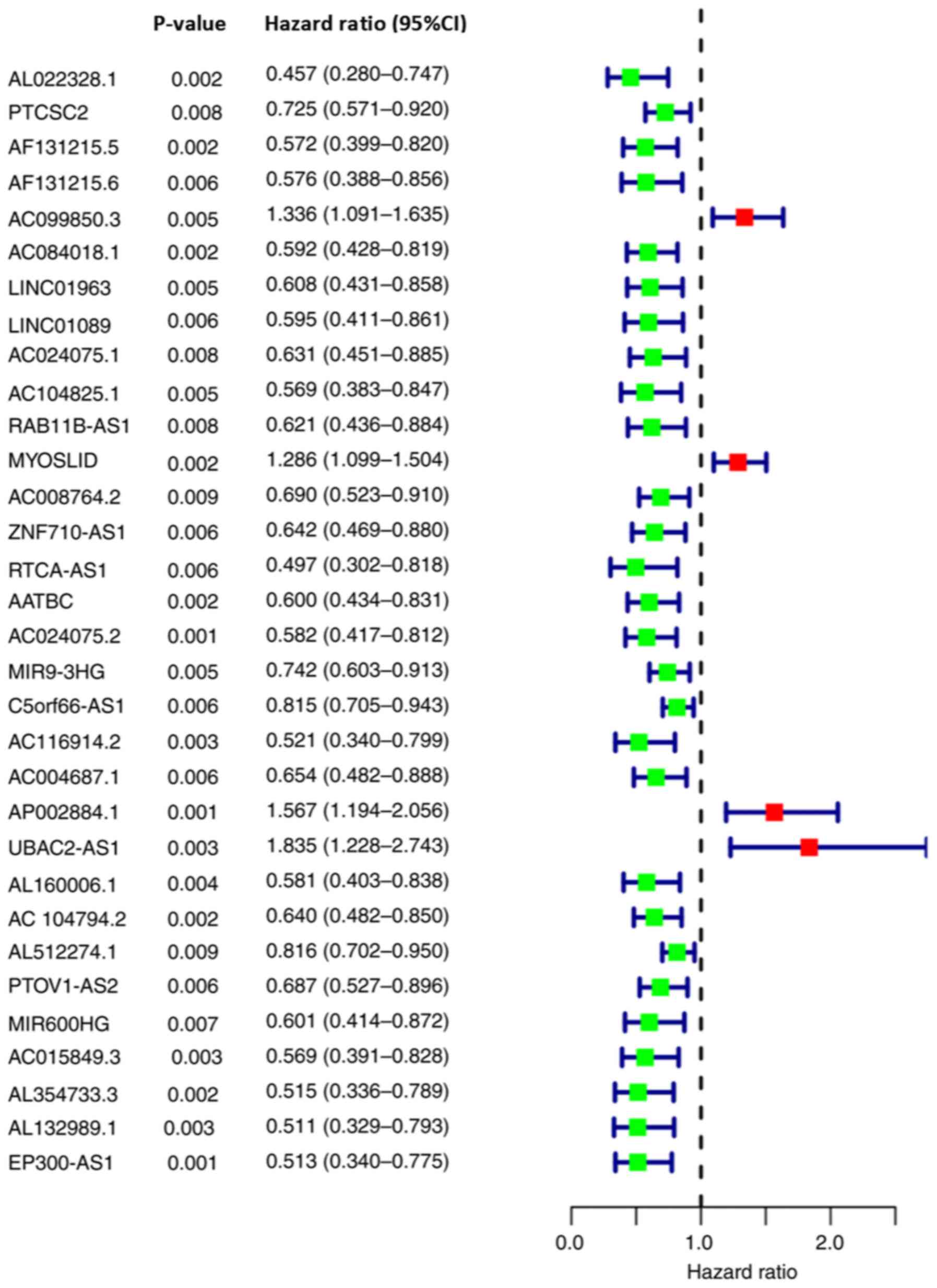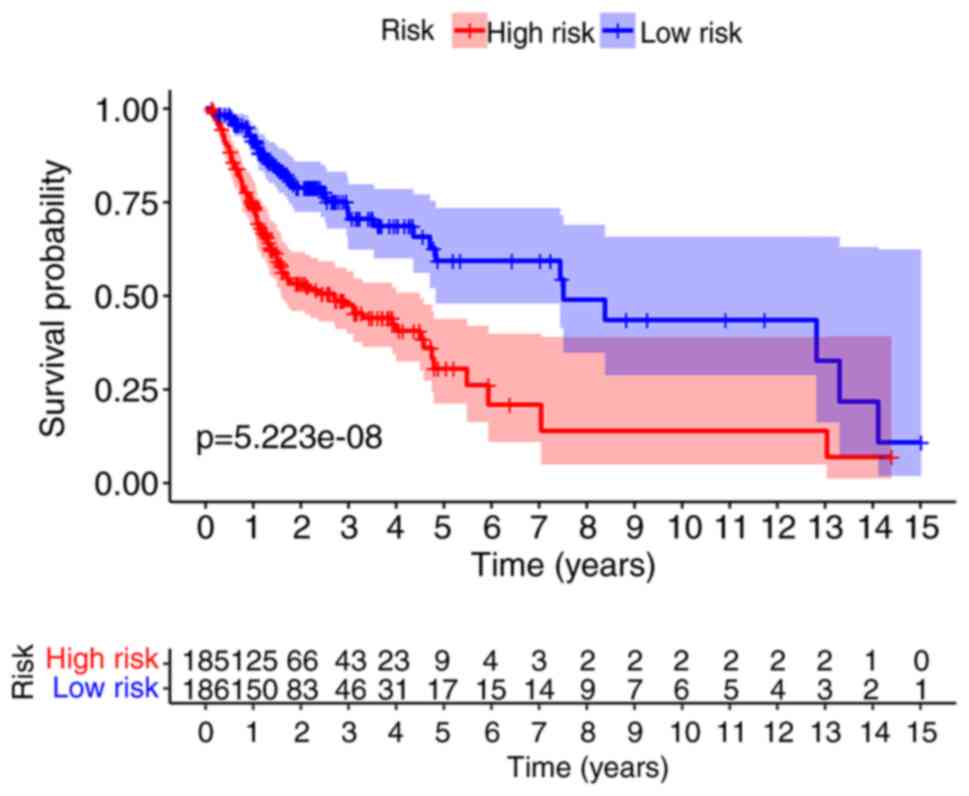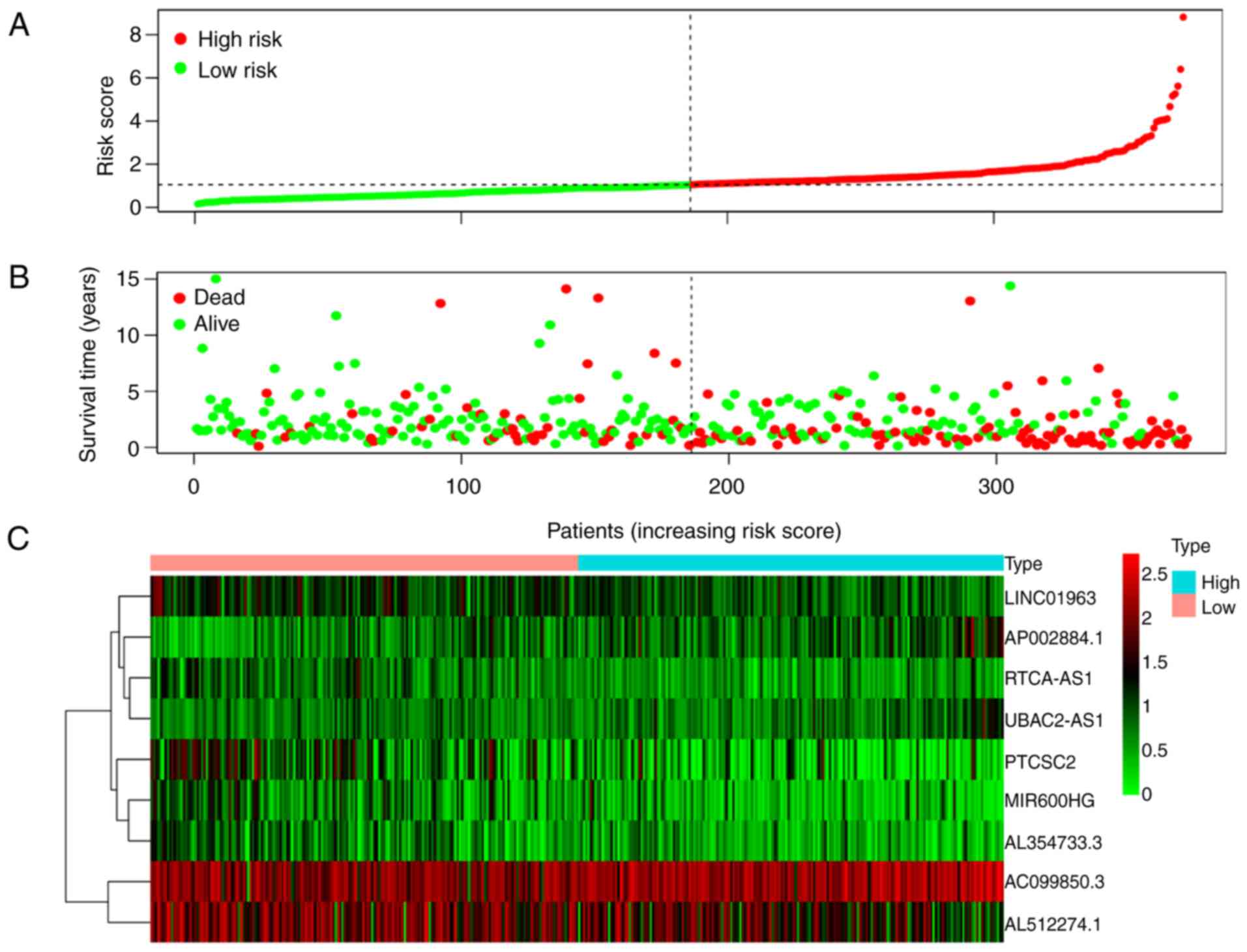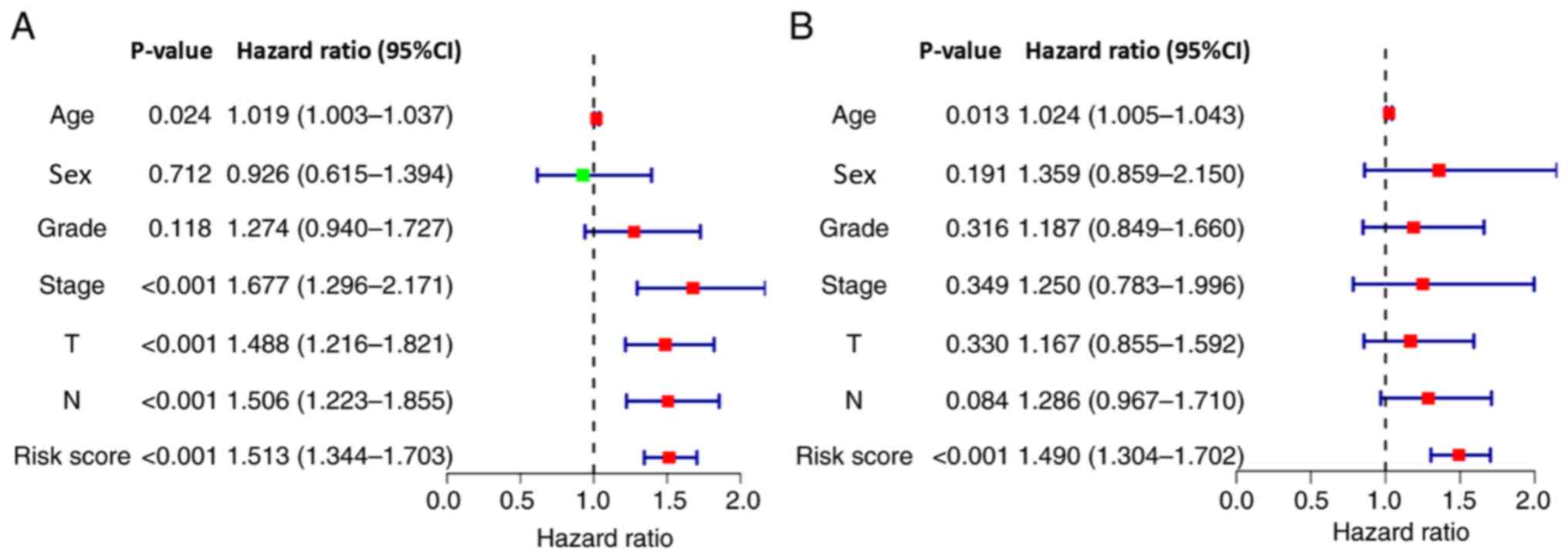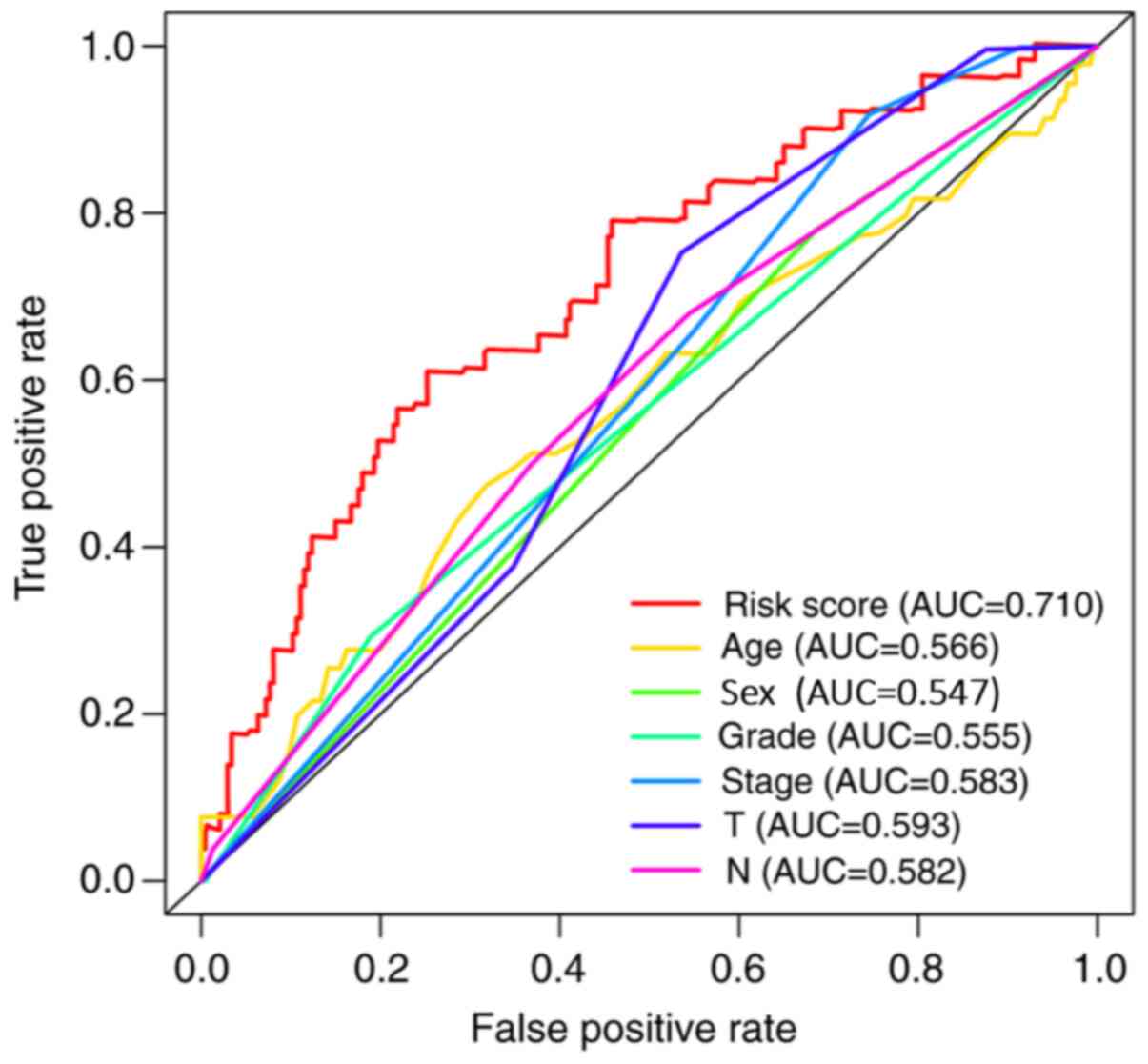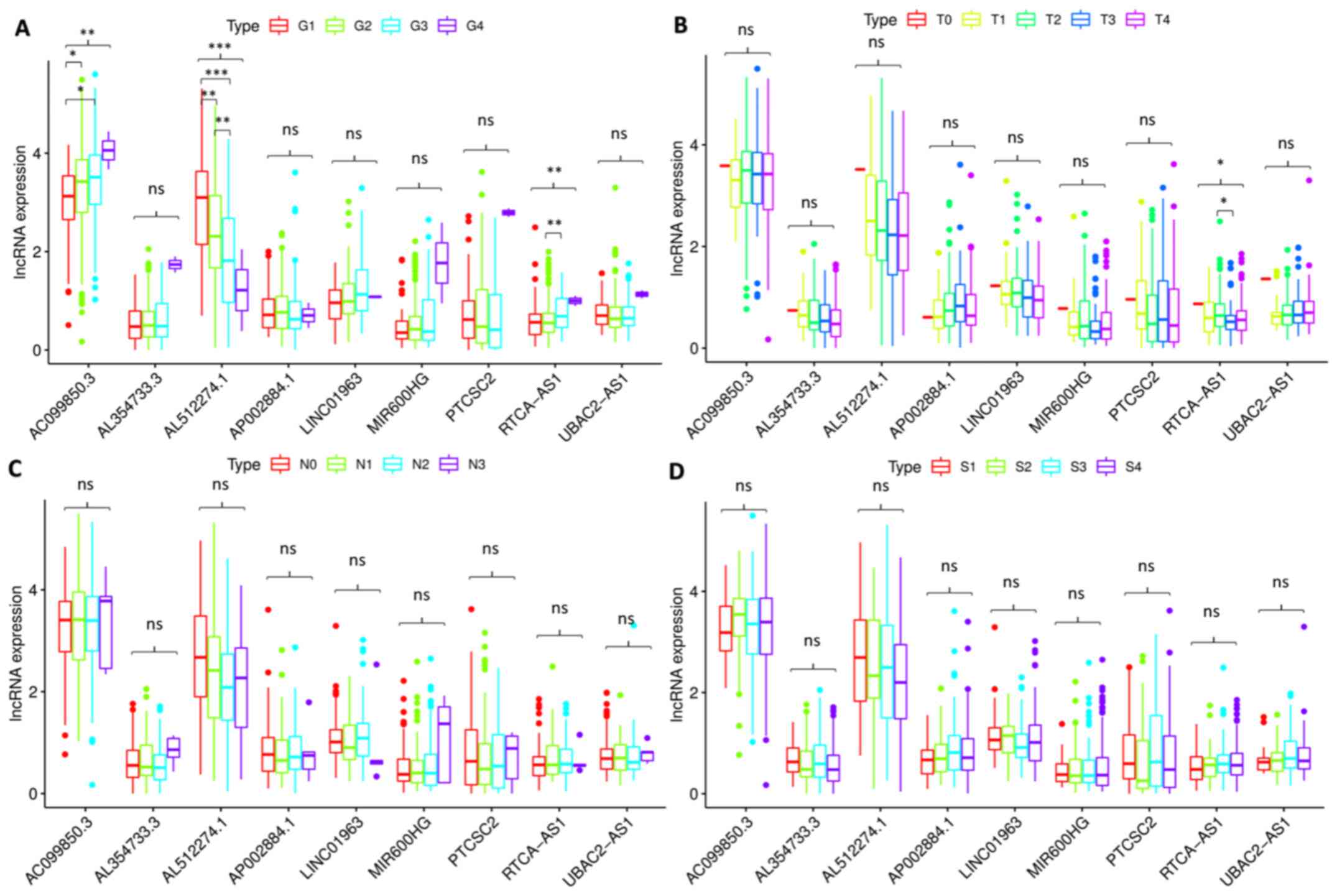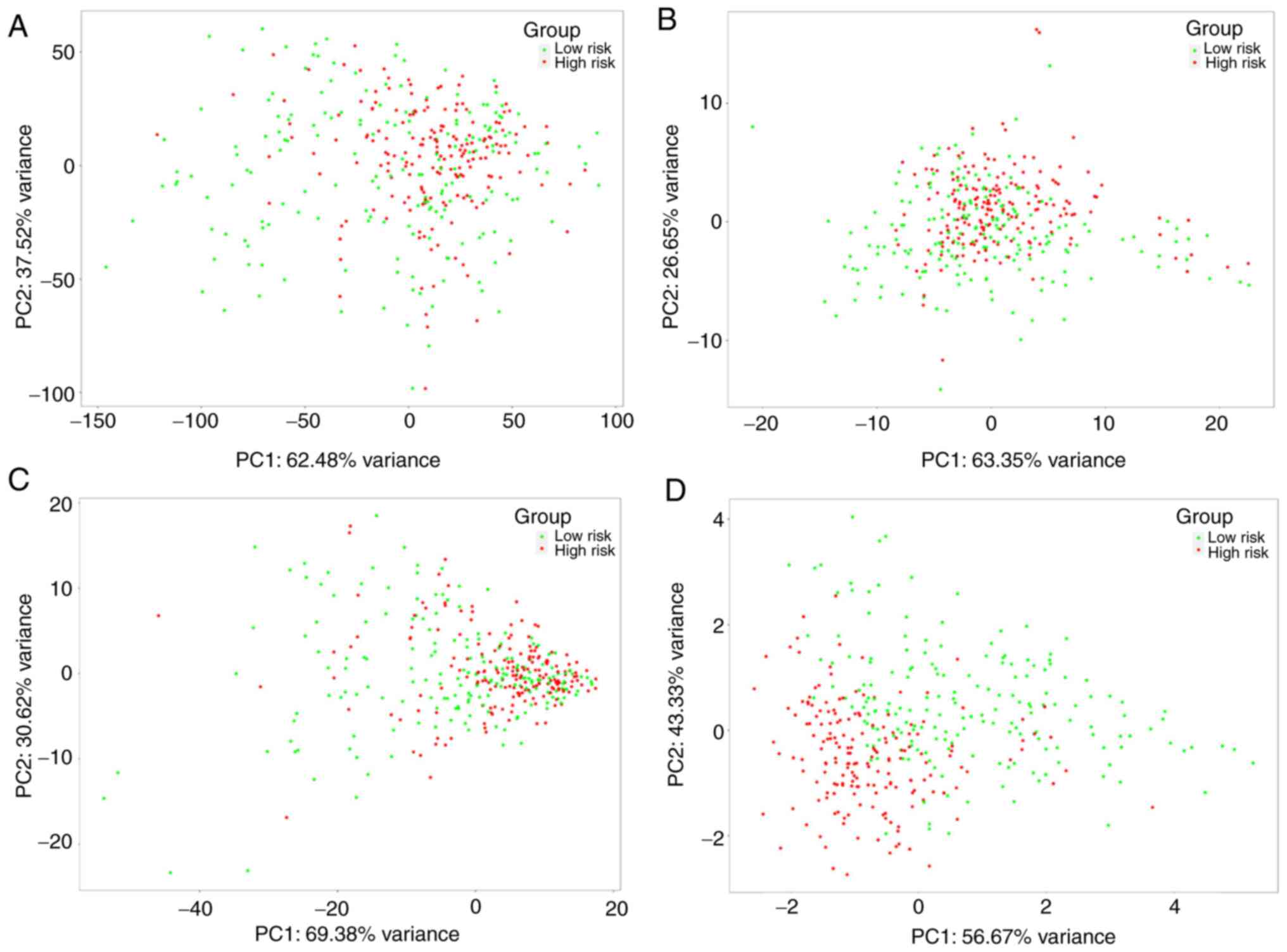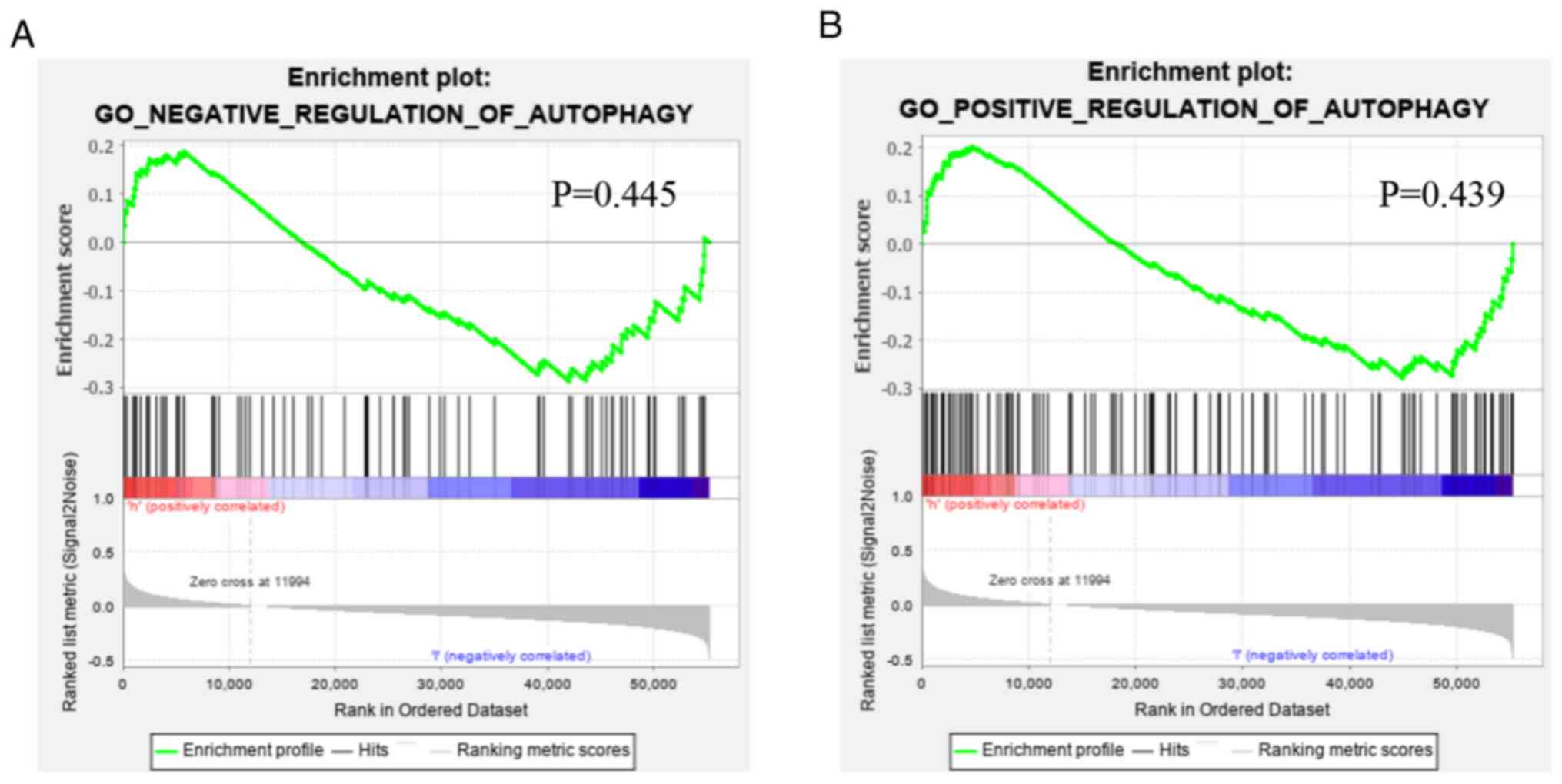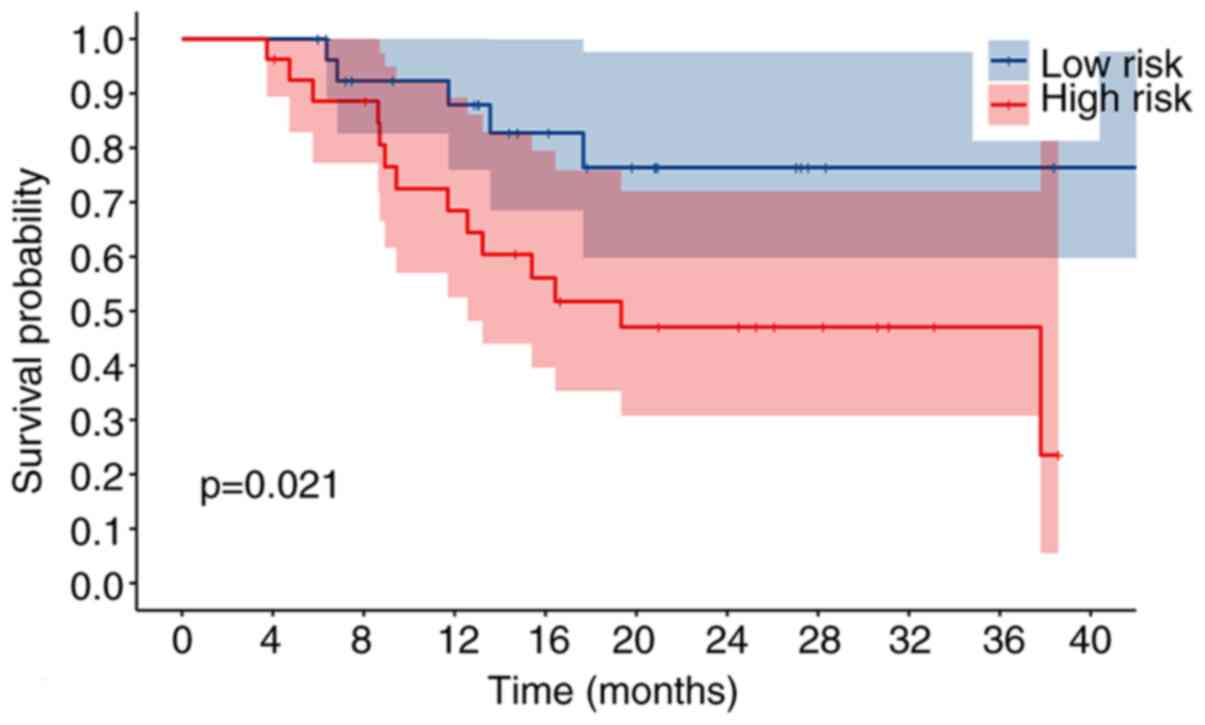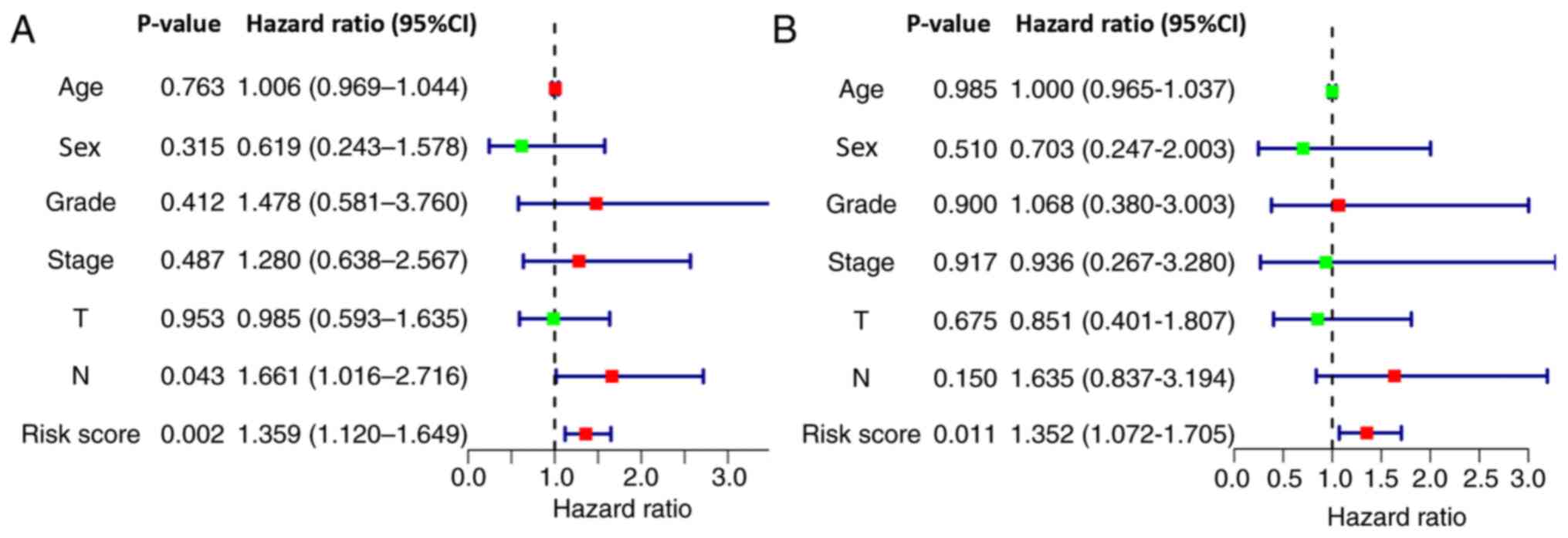|
1
|
Siegel RL, Miller KD and Jemal A: Cancer
statistics, 2018. CA Cancer J Clin. 68:7–30. 2018. View Article : Google Scholar : PubMed/NCBI
|
|
2
|
Chaturvedi AK, Anderson WF,
Lortet-Tieulent J, Curado MP, Ferlay J, Franceschi S, Rosenberg PS,
Bray F and Gillison ML: Worldwide trends in incidence rates for
oral cavity and oropharyngeal cancers. J Clin Oncol. 31:4550–4559.
2013. View Article : Google Scholar : PubMed/NCBI
|
|
3
|
Falzone L, Lupo G, La Rosa GRM, Crimi S,
Anfuso CD, Salemi R, Rapisarda E, Libra M and Candido S:
Identification of novel MicroRNAs and their diagnostic and
prognostic significance in oral cancer. Cancers (Basel).
11:6102019. View Article : Google Scholar
|
|
4
|
Nakagaki T, Tamura M, Kobashi K, Koyama R,
Fukushima H, Ohashi T, Idogawa M, Ogi K, Hiratsuka H, Tokino T and
Sasaki Y: Profiling cancer-related gene mutations in oral squamous
cell carcinoma from Japanese patients by targeted amplicon
sequencing. Oncotarget. 8:59113–59122. 2017. View Article : Google Scholar : PubMed/NCBI
|
|
5
|
Bavle RM, Venugopal R, Konda P,
Muniswamappa S and Makarla S: Molecular classification of oral
squamous cell carcinoma. J Clin Diagn Res. 10:ZE18–ZE21.
2016.PubMed/NCBI
|
|
6
|
Wu WK, Coffelt SB, Cho CH, Wang XJ, Lee
CW, Chan FK, Yu J and Sung JJ: The autophagic paradox in cancer
therapy. Oncogene. 31:939–953. 2012. View Article : Google Scholar : PubMed/NCBI
|
|
7
|
Kimmelman AC: The dynamic nature of
autophagy in cancer. Genes Dev. 25:1999–2010. 2011. View Article : Google Scholar : PubMed/NCBI
|
|
8
|
Lu T, Yu C, Ni H, Liang W, Yan H and Jin
W: Expression of the long non-coding RNA H19 and MALAT-1 in growth
hormone-secreting pituitary adenomas and its relationship to tumor
behavior. Int J Dev Neurosci. 67:46–50. 2018. View Article : Google Scholar : PubMed/NCBI
|
|
9
|
Stuart JM, Segal E, Koller D and Kim SK: A
gene-coexpression network for global discovery of conserved genetic
modules. Science. 302:249–255. 2003. View Article : Google Scholar : PubMed/NCBI
|
|
10
|
Tibshirani R: Regression shrinkage and
selection via the lasso. J R Statist Soc B. 58:267–288. 1996.
|
|
11
|
Livak KJ and Schmittgen TD: Analysis of
relative gene expression data using real-time quantitative PCR and
the 2(-Delta Delta C(T)) method. Methods. 25:402–408. 2001.
View Article : Google Scholar : PubMed/NCBI
|
|
12
|
Nassour J, Radford R, Correia A, Fuste JM,
Schoell B, Jauch A, Shaw RJ and Karlseder J: Autophagic cell death
restricts chromosomal instability during replicative crisis.
Nature. 565:659–663. 2019. View Article : Google Scholar : PubMed/NCBI
|
|
13
|
Poillet-Perez L, Xie X, Zhan L, Yang Y,
Sharp DW, Hu ZS, Su X, Maganti A, Jiang C, Lu W, et al: Autophagy
maintains tumour growth through circulating arginine. Nature.
563:569–573. 2018. View Article : Google Scholar : PubMed/NCBI
|
|
14
|
Mizushima N, Yoshimori T and Ohsumi Y: The
role of Atg proteins in autophagosome formation. Annu Rev Cell Dev
Biol. 27:107–132. 2011. View Article : Google Scholar : PubMed/NCBI
|
|
15
|
Shibutani ST and Yoshimori T: A current
perspective of autophagosome biogenesis. Cell Res. 24:58–68. 2014.
View Article : Google Scholar : PubMed/NCBI
|
|
16
|
Levy JMM, Towers CG and Thorburn A:
Targeting autophagy in cancer. Nat Rev Cancer. 17:528–542. 2017.
View Article : Google Scholar : PubMed/NCBI
|
|
17
|
Chandra V, Bhagyaraj E, Parkesh R and
Gupta P: Transcription factors and cognate signalling cascades in
the regulation of autophagy. Biol Rev Camb Philos Soc. 91:429–451.
2016. View Article : Google Scholar : PubMed/NCBI
|
|
18
|
Bhan A, Hussain I, Ansari KI, Kasiri S,
Bashyal A and Mandal SS: Antisense transcript long noncoding RNA
(lncRNA) HOTAIR is transcriptionally induced by estradiol. J Mol
Biol. 425:3707–3722. 2013. View Article : Google Scholar : PubMed/NCBI
|
|
19
|
Yang L, Zhang X, Li H and Liu J: The long
noncoding RNA HOTAIR activates autophagy by upregulating ATG3 and
ATG7 in hepatocellular carcinoma. Mol Biosyst. 12:2605–2612. 2016.
View Article : Google Scholar : PubMed/NCBI
|
|
20
|
Yang Y, Jiang C, Yang Y, Guo L, Huang J,
Liu X, Wu C and Zou J: Silencing of lncRNA-HOTAIR decreases drug
resistance of non-small cell lung cancer cells by inactivating
autophagy via suppressing the phosphorylation of ULK1. Biochem
Biophys Res Commun. 497:1003–1010. 2018. View Article : Google Scholar : PubMed/NCBI
|
|
21
|
Bao X, Ren T, Huang Y, Sun K, Wang S, Liu
K, Zheng B and Guo W: Knockdown of long non-coding RNA HOTAIR
increases miR-454-3p by targeting Stat3 and Atg12 to inhibit
chondrosarcoma growth. Cell Death Dis. 8:e26052017. View Article : Google Scholar : PubMed/NCBI
|
|
22
|
YiRen H, YingCong Y, Sunwu Y, Keqin L,
Xiaochun T, Senrui C, Ende C, XiZhou L and Yanfan C: Long noncoding
RNA MALAT1 regulates autophagy associated chemoresistance via
miR-23b-3p sequestration in gastric cancer. Mol Cancer. 16:1742017.
View Article : Google Scholar : PubMed/NCBI
|
|
23
|
Guo D, Ma J, Yan L, Li T, Li Z, Han X and
Shui S: Down-Regulation of Lncrna MALAT1 Attenuates neuronal cell
death through suppressing Beclin1-Dependent autophagy by regulating
Mir-30a in cerebral ischemic stroke. Cell Physiol Biochem.
43:182–194. 2017. View Article : Google Scholar : PubMed/NCBI
|
|
24
|
Guo X, Wu X, Han Y, Tian E and Cheng J:
lncRNA MALAT1 protects cardiomyocytes from isoproterenol-induced
apoptosis through sponging miR-558 to enhance ULK1-mediated
protective autophagy. J Cell Physiol. 234:10842–10854. 2019.
View Article : Google Scholar : PubMed/NCBI
|
|
25
|
Wang S, Yu W, Luo X, Chen J and Deng F:
MALAT1/miR-204/LC3-II: A potential regulated axis of autophagy in
myocardial ischemia-reperfusion injury. Int J Cardiol. 277:2222019.
View Article : Google Scholar : PubMed/NCBI
|
|
26
|
Tang YH, He GL, Huang SZ, Zhong KB, Liao
H, Cai L, Gao Y, Peng ZW and Fu SJ: The long noncoding RNA AK002107
negatively modulates miR-140-5p and targets TGFBR1 to induce
epithelial-mesenchymal transition in hepatocellular carcinoma. Mol
Oncol. 13:1296–1310. 2019. View Article : Google Scholar : PubMed/NCBI
|
|
27
|
Kapusta A and Feschotte C: Volatile
evolution of long noncoding RNA repertoires: Mechanisms and
biological implications. Trends Genet. 30:439–452. 2014. View Article : Google Scholar : PubMed/NCBI
|
|
28
|
Zhao K, Wang M, Kang H and Wu A: A
prognostic five long-noncoding RNA signature for patients with
rectal cancer. J Cell Biochem. 2019.(Epub ahead of print).
|
|
29
|
Zhou RS, Zhang EX, Sun QF, Ye ZJ, Liu JW,
Zhou DH and Tang Y: Integrated analysis of lncRNA-miRNA-mRNA ceRNA
network in squamous cell carcinoma of tongue. BMC Cancer.
19:7792019. View Article : Google Scholar : PubMed/NCBI
|
|
30
|
Bretin A, Carriere J, Dalmasso G,
Bergougnoux A, B'Chir W, Maurin AC, Muller S, Seibold F, Barnich N,
Bruhat A, et al: Activation of the EIF2AK4-EIF2A/eIF2α-ATF4 pathway
triggers autophagy response to Crohn disease-associated
adherent-invasive Escherichia coli infection. Autophagy.
12:770–783. 2016. View Article : Google Scholar : PubMed/NCBI
|
|
31
|
B'Chir W, Maurin AC, Carraro V, Averous J,
Jousse C, Muranishi Y, Parry L, Stepien G, Fafournoux P and Bruhat
A: The eIF2α/ATF4 pathway is essential for stress-induced autophagy
gene expression. Nucleic Acids Res. 41:7683–7699. 2013. View Article : Google Scholar : PubMed/NCBI
|
|
32
|
Zhu H, Lu J, Zhao H, Chen Z, Cui Q, Lin Z,
Wang X, Wang J, Dong H, Wang S and Tan J: Functional long noncoding
RNAs (lncRNAs) in clear cell kidney carcinoma revealed by
reconstruction and comprehensive analysis of the lncRNA-miRNA-mRNA
regulatory network. Med Sci Monit. 24:8250–8263. 2018. View Article : Google Scholar : PubMed/NCBI
|
|
33
|
Chen K, Xie S and Jin W: Crucial lncRNAs
associated with adipocyte differentiation from human
adipose-derived stem cells based on co-expression and ceRNA network
analyses. Peerj. 7:e75442019. View Article : Google Scholar : PubMed/NCBI
|
|
34
|
Chen R, Zhu J, Dong Y, He C and Hu X:
Suppressor of Ty homolog-5, a novel tumor-specific human telomerase
reverse transcriptase promoter-binding protein and activator in
colon cancer cells. Oncotarget. 6:32841–32855. 2015. View Article : Google Scholar : PubMed/NCBI
|
|
35
|
Song J, Xu Q, Zhang H, Yin X, Zhu C, Zhao
K and Zhu J: Five key lncRNAs considered as prognostic targets for
predicting pancreatic ductal adenocarcinoma. J Cell Biochem.
119:4559–4569. 2018. View Article : Google Scholar : PubMed/NCBI
|
|
36
|
Kluge AF, Lagu BR, Maiti P, Jaleel M, Webb
M, Malhotra J, Mallat A, Srinivas PA and Thompson JE: Novel highly
selective inhibitors of ubiquitin specific protease 30 (USP30)
accelerate mitophagy. Bioorg Med Chem Lett. 28:2655–2659. 2018.
View Article : Google Scholar : PubMed/NCBI
|
|
37
|
Camenisch U, Dip R, Schumacher SB, Schuler
B and Naegeli H: Recognition of helical kinks by xeroderma
pigmentosum group A protein triggers DNA excision repair. Nat
Struct Mol Biol. 13:278–284. 2006. View Article : Google Scholar : PubMed/NCBI
|
|
38
|
Ge R, Liu L, Dai W, Zhang W, Yang Y, Wang
H, Shi Q, Guo S, Yi X, Wang G, et al: Xeroderma pigmentosum group A
promotes autophagy to facilitate cisplatin resistance in melanoma
cells through the activation of PARP1. J Invest Dermatol.
136:1219–1228. 2016. View Article : Google Scholar : PubMed/NCBI
|
|
39
|
Inoki K, Li Y, Zhu T, Wu J and Guan KL:
TSC2 is phosphorylated and inhibited by Akt and suppresses mTOR
signalling. Nat Cell Biol. 4:648–657. 2002. View Article : Google Scholar : PubMed/NCBI
|
|
40
|
Zhang J, Kim J, Alexander A, Cai S,
Tripathi DN, Dere R, Tee AR, Tait-Mulder J, Di Nardo A, Han JM, et
al: A tuberous sclerosis complex signalling node at the peroxisome
regulates mTORC1 and autophagy in response to ROS. Nat Cell Biol.
15:1186–1196. 2013. View Article : Google Scholar : PubMed/NCBI
|
|
41
|
Teixeira MB, Alborghetti MR and Kobarg J:
Fasciculation and elongation zeta proteins 1 and 2: From structural
flexibility to functional diversity. World J Biol Chem. 10:28–43.
2019. View Article : Google Scholar : PubMed/NCBI
|
|
42
|
Tsang HT, Connell JW, Brown SE, Thompson
A, Reid E and Sanderson CM: A systematic analysis of human CHMP
protein interactions: Additional MIT domain-containing proteins
bind to multiple components of the human ESCRT III complex.
Genomics. 88:333–346. 2006. View Article : Google Scholar : PubMed/NCBI
|
|
43
|
Barlin JN, Jelinic P, Olvera N, Bogomolniy
F, Bisogna M, Dao F, Barakat RR, Chi DS and Levine DA: Validated
gene targets associated with curatively treated advanced serous
ovarian carcinoma. Gynecol Oncol. 128:512–517. 2013. View Article : Google Scholar : PubMed/NCBI
|
|
44
|
Li K, Liu J, Tian M, Gao G, Qi X, Pan Y,
Ruan J, Liu C and Su X: CHMP4C disruption sensitizes the human lung
cancer cells to irradiation. Int J Mol Sci. 17:182015. View Article : Google Scholar
|
|
45
|
Cagnol S and Chambard JC: ERK and cell
death: Mechanisms of ERK-induced cell death-apoptosis, autophagy
and senescence. FEBS J. 277:2–21. 2010. View Article : Google Scholar : PubMed/NCBI
|
|
46
|
Ellington AA, Berhow MA and Singletary KW:
Inhibition of Akt signaling and enhanced ERK1/2 activity are
involved in induction of macroautophagy by triterpenoid B-group
soyasaponins in colon cancer cells. Carcinogenesis. 27:298–306.
2006. View Article : Google Scholar : PubMed/NCBI
|
















